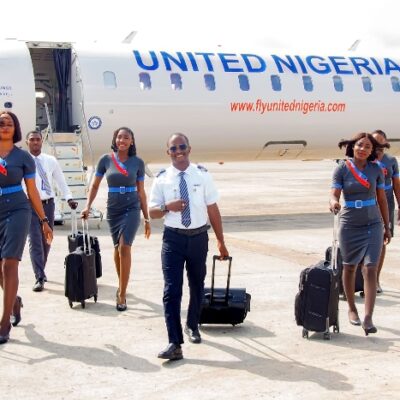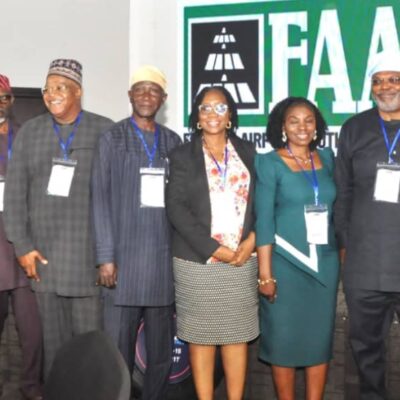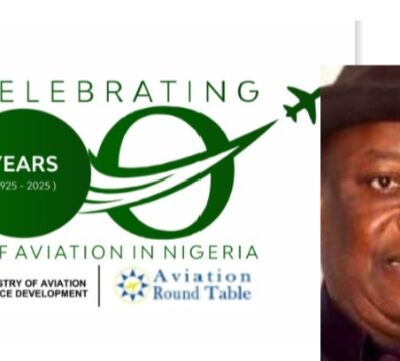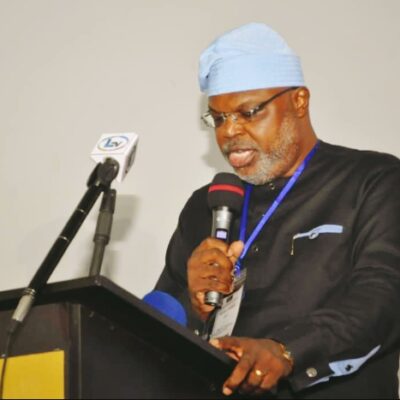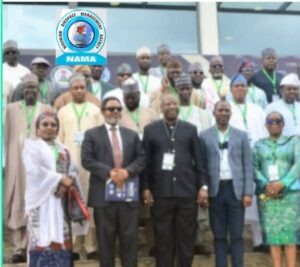 see
see
BY OLAPEJU OLUBI
The Nigerian Airspace Management Agency (NAMA) has called on the National Assembly to intervene in ending the controversial 50% revenue deduction and to enable the agency achieve full financial autonomy.
The plea was made by NAMA’s Managing Director, Engr. Farouk Umar, during his opening remarks at the ongoing four-day retreat of the House Committee on Aviation in Abuja.
“Modernising Nigeria’s aviation sector cannot happen without financial reform,” Engineer Umar asserted, stressing that the agency’s current funding constraints hinder its ability to maintain critical infrastructure, train skilled personnel, and meet international safety standards.
He urged full enforcement of Section 9(2) of the NAMA Act 2022, which stipulates that “all fees and charges imposed by NAMA are not subject to deductions or remittance to any other body.”
According to him, adherence to this provision is essential for the agency to maintain towers, radars, and communication networks; implement Performance-Based Navigation (PBN) and Satellite-Based Augmentation Systems (SBAS); and ensure uninterrupted services for airlines.
Engineer Umar lamented that the existing 50% deduction, which contravenes the NAMA Act, “cripples the agency’s capacity to meet its statutory responsibilities, expand capacity, and deliver on international obligations.”
He emphasised that compliance with Section 9(2) would allow NAMA to fund critical infrastructure, maintain and calibrate Communication, Navigation, and Surveillance (CNS) equipment in line with ICAO standards, employ and train personnel, and invest in digitalization and innovation to remain globally competitive.
The NAMA chief also sought the House Committee’s intervention on the implementation of Obstruction Evaluation Fees, as provided under Section 18(1)(a), (b), and (xii) of the NAMA Act, 2022.
“The statutory provision unambiguously empowers NAMA to collect obstruction evaluation fees to ensure the safety, efficiency, and regularity of Nigeria’s airspace,” he explained, noting that overlapping roles with another aviation agency have constrained NAMA’s capacity to harness this lawful revenue source.
Additionally, Engr. Umar called for a comprehensive review of air navigation charges, which have remained unchanged since 2008.
He stressed that updating these fees is critical to reflect current economic realities and ensure true cost recovery.
Earlier in the retreat, the Chairman of the House Committee on Aviation, Rt. Hon. Abdullahi Idris Garba, emphasized the National Assembly’s commitment to developing actionable plans that enhance aviation safety, improve infrastructure, and reinforce regulatory compliance.
“The time has come for stakeholders to share expertise and synergize to address challenges while tapping into the abundant opportunities in the sector,” he said.
The retreat, themed “Emerging Trends in Global Aviation: Sustainability, Technology, and Digital Transformation,” features interactive sessions, insightful presentations, and collaborative discussions covering airspace management, legislative oversight, and stakeholder engagement.
Engineer Umar’s appeal highlights NAMA’s resolve to secure financial independence, modernize Nigeria’s aviation infrastructure, and ensure the country meets international standards, positioning the agency as a linchpin for the nation’s aviation growth and safety agenda.
Olapeju is a journalist and aviation reporter.


